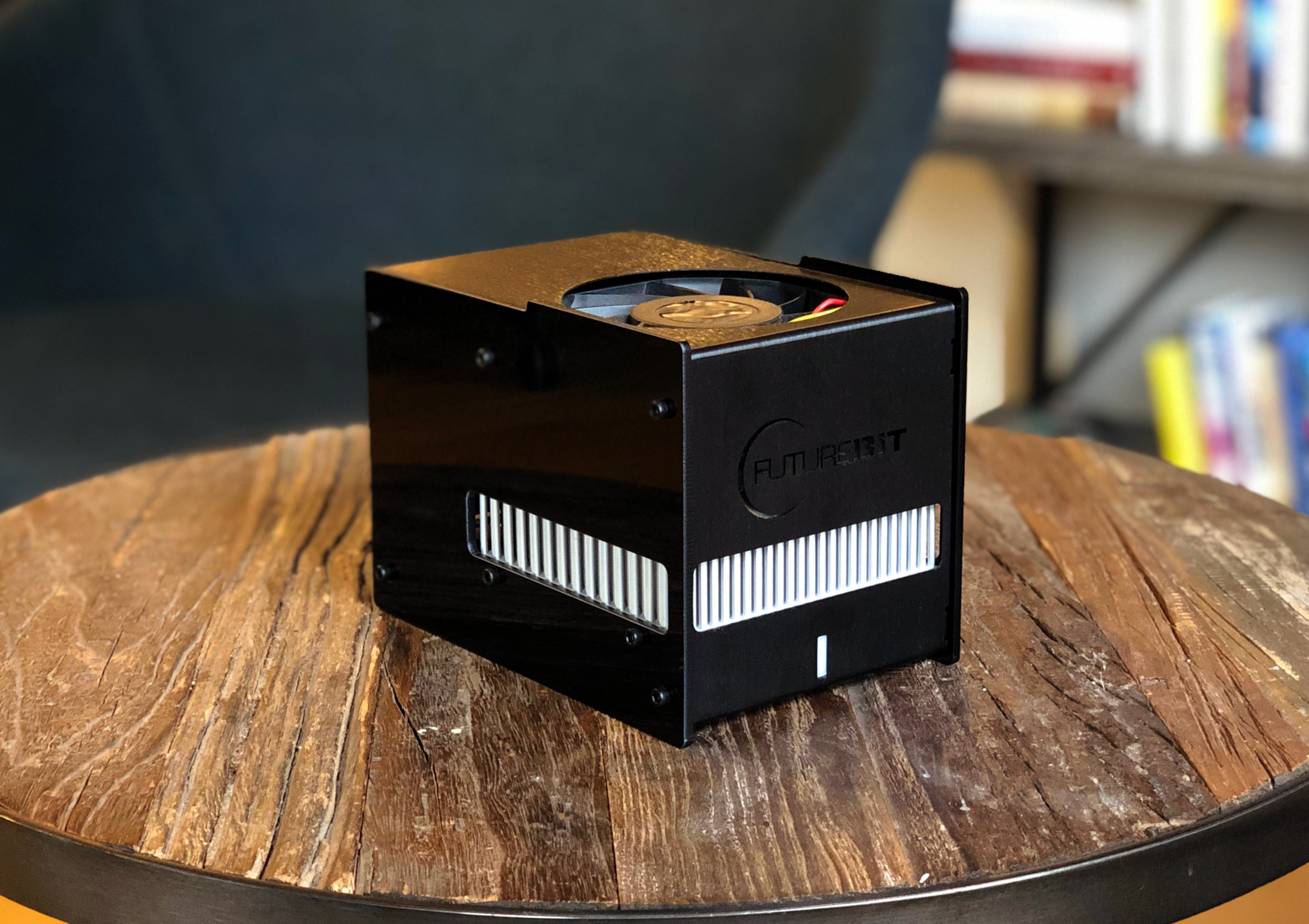Futurebit Apollo
Hands-on experience with the flagship Scrypt miner from Futurebit

My dabbling with cryptocurrency mining has predominantly been via a pair of Futurebit Moonlander 2 USB stick miners. The Moonlander 2 devices have been great – reliable, quiet, and performing as advertised. When I decided to grow beyond the Moonlanders, I picked up Futurebit's flagship product: Apollo.
Last night I took about 30 minutes and got it plugged into a power supply (I chose an HPE server power supply after some deliberation, although Futurebit offers efficient, bespoke PSUs for your Apollo at the time of purchase) and flashed the boot image onto a 64GB microSD card. It came up right away, acquired a DHCP address, and I was able to log into both the web UI and SSH. I initially had some issues getting the miner to register to litecoinpool.org, but @jstefanop1 (the designer and builder) was quick to come to the rescue, letting me know the error message I had was due to some connectivity problems. Sure enough, I hadn't added my Apollo to the correct tenant on my 128T's configuration, and it had no route to litecoinpool. Sheesh – the part you'd think I'd get right.
It's now happily mining away. The web UI is easy to use and gorgeous (based on the Minera project), and makes administration a breeze. It worked seamlessly on my iPad and laptop.
Like my other cryptocurrency explorations, this is not a "get rich quick" scheme -- nor even a "get rich slow" scheme. (It's definitely a loss leader, although the Apollo is extremely efficient as far as crypto miners go.) For me, it's a bit of an additional investment in supporting crypto, learning more about decentralization of currency, and get hands-on experience with the technology behind it.
The Apollo cruises along at about 100MH/s, which is a modest pace – about 20% of the speed of an Antminer L3+. At the current LTC difficulty level this yields about 0.01LTC every two days on litecoinpool.org. (As I write this, that's worth about $.28USD per day, running on ~100W of power. So unless you have cheap power, this is going to be a losing proposition, albeit only slightly.)
I highly recommend Apollo for anyone interested in getting into crypto mining. It's a well built machine, well supported, quiet, and efficient. And maybe you'll get lucky and mine a block and it'll pay for itself!